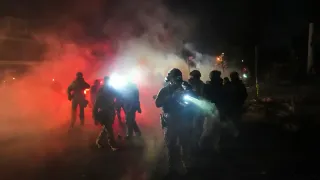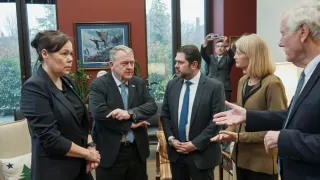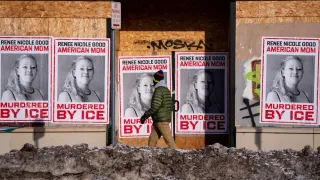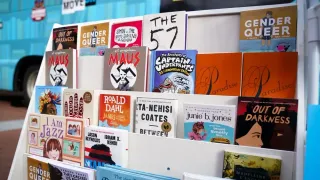April 13, 2015
Rubio Tells Donors He is Running for White House
Jason St. Amand READ TIME: 2 MIN.
Sen. Marco Rubio on Monday took on Hillary Rodham Clinton in his first words as a presidential candidate, telling top donors he is running for the Republican nomination because the 2016 race for the White House should be about the future, not the past.
The first-term Republican from Florida, 43, also told his most generous backers that he feels "uniquely qualified" to pitch his Republican Party as one that will defend the American Dream.
Rubio spoke on a conference call with donors before a flashy political rally set for Monday night in Miami.
In previewing his campaign's central message, Rubio said the dream is slipping from too many families' grip, and young Americans face unequal opportunities to succeed. It was a message honed to pitch the GOP as a party that cares about all voters, not just those in upper tax brackets.
"I feel uniquely qualified to not just make that argument, but to outline the policies that we need to have in order to achieve it," he said.
A young man in a hurry, Rubio will no doubt hear rivals tell voters he's not ready for the White House. To counter that, Rubio has outlined specific policy proposals that boost him as a policy expert, both on foreign and domestic issues.
On Tuesday, on his first day as an official candidate, he is set to return to Washington to join a Senate hearing on a proposed deal with Iran on its nuclear ambitions.
Rubio's presidential announcement comes a day after Clinton announced her bid for the Democratic nomination and as she is traveling to Iowa on her first trip as a candidate.
That's likely to rob some attention from Rubio's splash into the race. But Rubio saw an opportunity to cast the presidential contest as one between a fresh face representing a new generation of leadership and a long-familiar figure harking back to the 1990s - namely, Clinton.
"The Republican Party, for the first time in a long time, has a chance in this election to be the party of the future," Rubio told his donors. "Just yesterday, we heard from a leader from yesterday who wants to take us back to yesterday, but I feel that this country has always been about tomorrow."
Rubio faces steep challenges to winning the nomination, one of them from his mentor, former Florida Gov. Jeb Bush. Rubio would become the third major GOP contender to declare himself a candidate, after Texas Sen. Ted Cruz and Sen. Rand Paul, in a field that could grow to 20 or more candidates.
A first-generation immigrant whose parents fled Cuba, Rubio could make history as the nation's first Hispanic president (as could Cruz). Rubio frames his pitch to voters as the embodiment of American opportunity, as the son of a maid and bartender who worked his way through law school and now sits in Congress.






